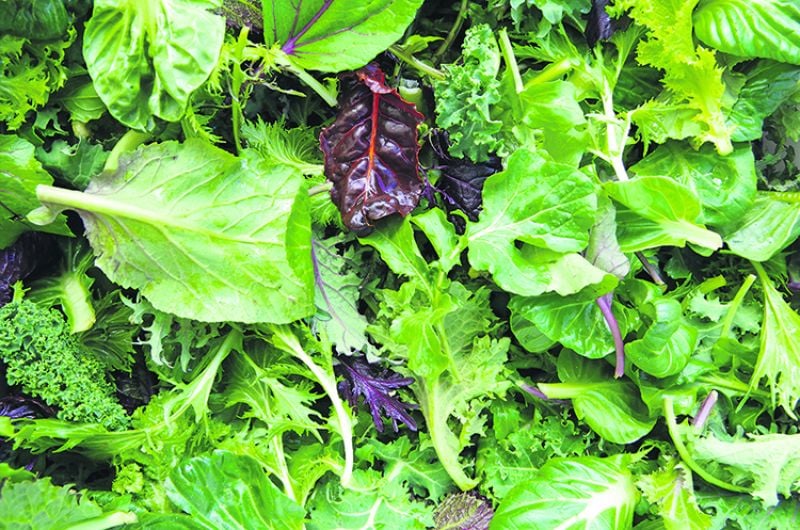September marks World Alzheimer's Month. An estimated 55,000 people in Ireland are living with dementia, including one of its forms Alzheimer's disease
Health & Nutrition with Rosie Shelley
SEPTEMBER marks World Alzheimer’s Month. An estimated 55,000 people in Ireland are living with dementia, including one of its forms Alzheimer’s disease (AD). One in 10 of them is under the age of 65. As a letter to this paper stated last week, it is estimated that there are over 6,400 people living with dementia in County Cork alone.
AD is characterised by the formation of amyloid ‘tangles’ and ‘plaques’ in the brain. These clumps destroy brain cells and interfere with its chemical messaging functions, particularly of acetylcholine, which deals especially with memory. Age is of course the primary risk factor, but others are equally important— diabetes, cardiovascular issues, genetics, infections, stress and nutritional deficiencies. Researchers found in August that there was a 20% lower risk in people who were properly controlling their diabetes—excess glucose in the blood is known to contribute to the inflammation involved.
Power of a healthy diet
An overview of more than 300 studies found that the number one protective factor was a healthy diet, and another major study out this month concluded that a healthy overall lifestyle can slash the risk by a third.
The UK experts said that 20 minutes daily exercise, and eating plenty of veg and some fruit, eating fish and avoiding processed meats is enough to offset the risk by 32% even in those who are genetically predisposed.
Research published this week focuses on high blood pressure. We’ve always known that it can impact on brain function, but now it seems that hypertension in your early middle age—36 to 53—has a particularly damaging effect, so make sure to get it checked out whatever your age. Cognitive health is directly linked to heart health, and both are strongly determined by blood levels of a toxic compound called homocysteine. Reducing those levels, by taking high strength B vitamins, would therefore be the first plan of action. Another very promising supplement/food is turmeric, proven to boost brain function and mood by 28% in older adults with memory problems.
Probiotics
Inflammation (partly as a result of poor gut bacterial balance) is a central feature, as is oxidative damage to the cells, so taking a good probiotic and eating plenty of antioxidants in brightly coloured plant foods is the second prong of attack, along with exercising regularly (in the sunshine for important brain nutrient vitamin D).
Get moving
Inactivity raises the risk of AD by 82%, while researchers following 191 women over four decades showed that those who were fit were a similarly huge 88% less likely to develop dementia.
Recently it was confirmed that even a brisk walk can release a memory supporting hormone, osteocalcin, from the bones.
The role of tea and coffee in prevention is down to their antioxidant content. Various studies have shown that normal and green tea can lower the risk of dementia by more than 80%; that regular coffee drinkers have a 27% lower risk; that compounds in coffee block the clumping of those proteins in the brain; and that the longer the coffee is roasted, the better the protection.
Cut right back on inflammatory sugars, white grains, sweeteners and processed foods (increased risk of 88%), stick to omega-3 richer grass-fed meat and dairy, and avoid trans/hydrogenated fats altogether-- you only need 2g a day to cause cognitive decline.
And be sure to visit your dentist regularly—a strong connection has been established between gum disease and amyloid clumping, and this year firm evidence was found that the bacteria from your gums can travel to the brain and destroy neurons.
Leafy greens
One US study showed that those eating the most leafy greens were the equivalent of an astonishing 11 years younger, cognitively speaking.
A diet high in healthy fats reduces risk by 44%, and the Mediterranean diet, based on colourful vegetables and fruit, greens, oily fish, beans and lentils, nuts and seeds and olive oil, is widely accepted by as the very best model for the prevention and control of AD. Olive oil contains compounds that can halt the build-up of those plaques.
Japanese research showed that an orange or other citrus fruit a day can cut the risk of dementia by 23%. And in China, scientists found that a beta carotene (those orange/yellow/dark green fruit and veg) deficiency significantly raises it.
Research has pointed to high levels of copper in the blood of AD sufferers, and we know that copper makes it harder for the brain to get rid of amyloid proteins. It is, however, in a great variety of (healthy) foods, so the answer is to take a supplement of zinc, which is antagonistic: the higher your zinc levels, the lower those of copper.
Stress and anxiety
Canadian scientists found that chronic exposure to anxiety and stress hormones—also inflammatory – damage and shrink the relevant parts of the brain. Do anything you can to control stress levels, including of course that exercise, and getting a good night’s sleep.
Science suggests that both exercise and sleep stimulate the glymphatic system in the brain that ‘cleans’ out the toxic build up of amyloid proteins.
And finally, keep busy, keep your brain busy—things like crossword puzzles won’t it seem prevent AD but will keep it at bay for longer—and maintain a social life.
Over 157,000 people in Ireland report feeling lonely, which raises the risk by a shocking 64%, so keep in touch with family and friends.
Vital Nutrients
• B vitamins: brown rice, millet, broccoli, leafy greens, potatoes, bananas, pulses, nuts and seeds, oily fish, liver, poultry, eggs, dairy, seaweeds
• Folic Acid: leafy greens, root veg, wholegrains, beans and lentils, almonds
• Beta-carotene: orange/yellow fruits and veg, broccoli and leafy greens, eggs, full fat dairy, seaweeds
• Vitamin C: berries, tomatoes, peppers, broccoli, apples, citrus
• Vitamin D: sunshine, oily fish
• Vitamin E: nuts and seeds, avocado, brown rice, sardines, cold pressed virgin olive oil
• Antioxidants: all fruit and veg, nuts, pulses, turmeric, green tea, tea, coffee and dark chocolate
• Omega 3: oily fish, chia seeds, walnuts, greens, fermented soya
• Choline (precursor to acetylcholine): eggs, sardines, liver, pulses, oranges
• Magnesium: wholegrains, pulses, nuts and seeds, leafy greens, fish, seaweeds
• For more information, go to www.understand-together.ie/get-involved, or call Freephone 1800341341.







